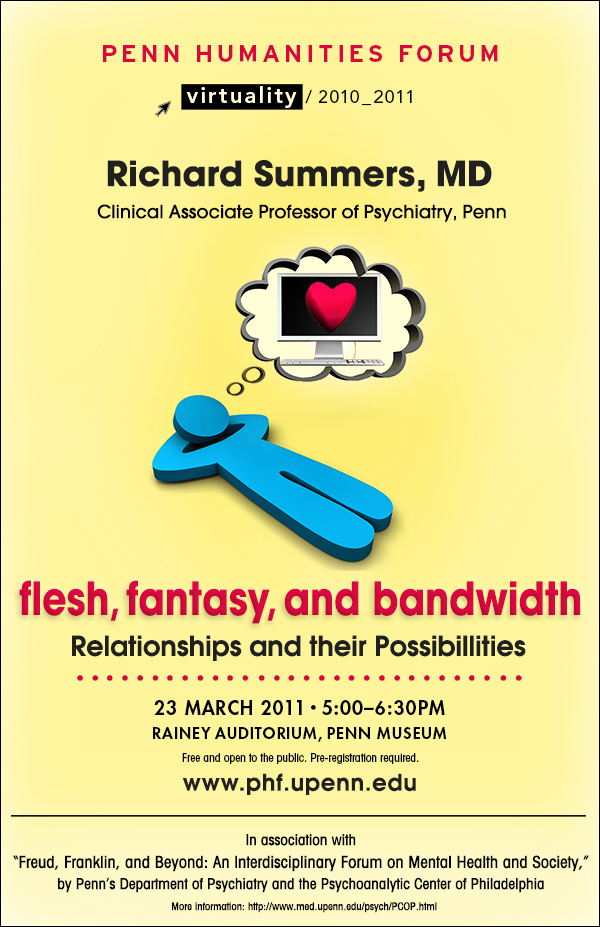Human interactions depend on virtuality. Relating to others involves a balance of fantasy and reality, and healthy, satisfying relationships reflect complex, rich contradictions between these two realms. Penn psychotherapist Richard Summers discusses what psychoanalytic concepts of fantasy and transference, together with new findings about the social brain, can tell us about human connections in our increasingly wired world.
The Penn Humanities Forum is pleased to cosponsor Dr. Summers' talk as part of "Freud, Franklin and Beyond: An Interdisciplinary Forum on Mental Health and Society." This series of panel discussions is sponsored by Penn's Department of Psychiatry and the Psychoanalytic Center of Philadelphia. For more information on other events in this series and for professional CE eligibility criteria, please visit Penn's Department of Psychiatry website, or call 215-746-7248.
Richard F. Summers is Clinical Associate Professor in the Department of Psychiatry at Penn, where he is responsible for directing psychotherapy training, the teaching curriculum, supervision, and other aspects of outpatient training in the Penn Psychiatry Residency. He also maintains a private practice.
Named a "Top Doc" by Philadelphia Magazine numerous times since 1996, Dr. Summers has also received many teaching awards, most recently the Robert Dunning Dripps Award for Excellence in Graduate Medical Education by Penn's School of Medicine, and the Psychiatric Educator of the Year by the Philadelphia Psychiatric Society in 2007, and Teacher of the Year at the Psychoanalytic Center of Philadelphia in 2008.
His research interests include the contemporary revision of the theory and technique of psychodynamic psychotherapy, new approaches to psychotherapy training and education, the role of the therapeutic alliance in learning psychotherapy, comprehensive psychodynamic formulation, and positive psychology. His clinical interests focus on combined psychotherapeutic and psychopharmacologic treatment of mood and anxiety disorders, and adult lifecycle development.
Dr. Summers is co-author of the recently published Psychodynamic Therapy: A Guide to Evidence-Based Practice, now widely used in psychiatry residency training and psychology graduate programs. He took his B.A. from Harvard College and M.D. from Penn's School of Medicine.
Clinical Associate Professor of Psychiatry
University of Pennsylvania



